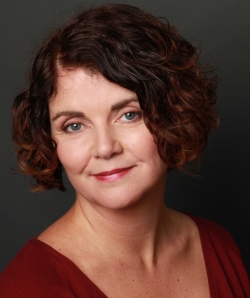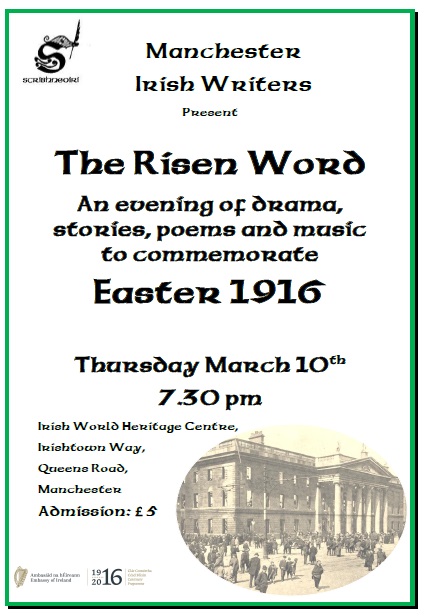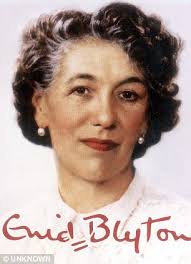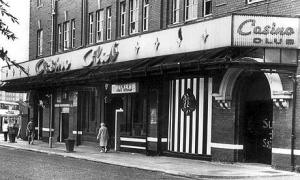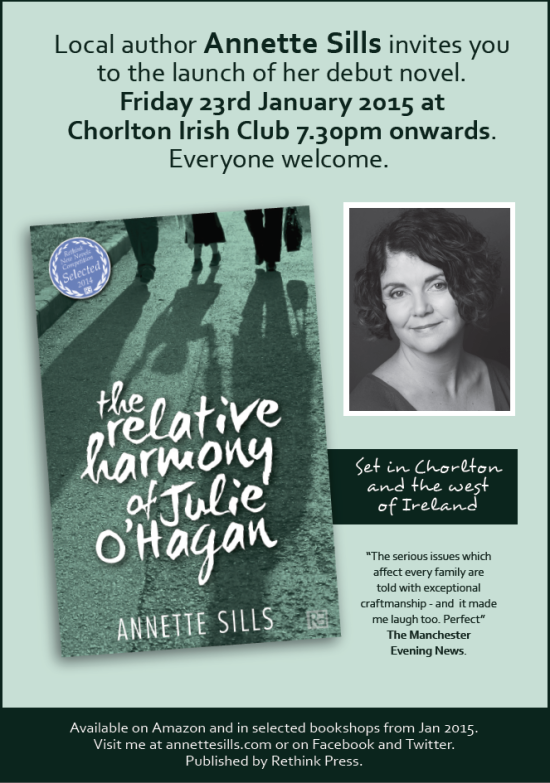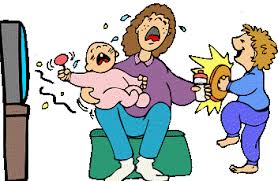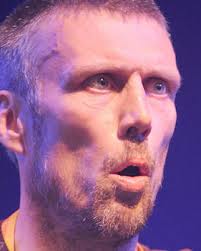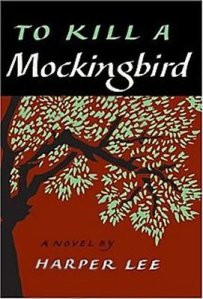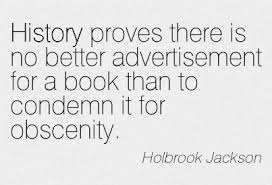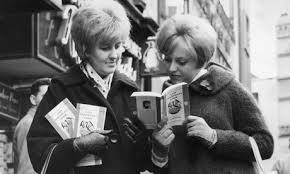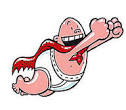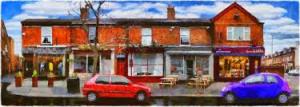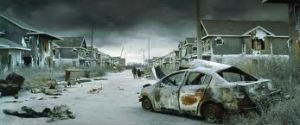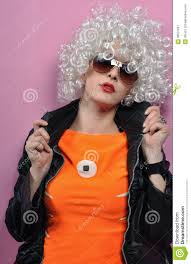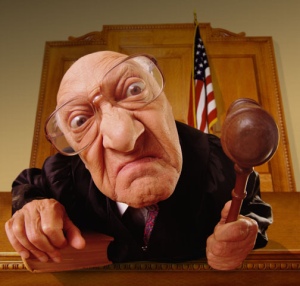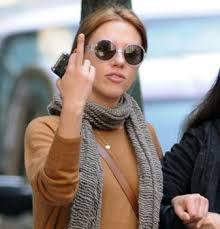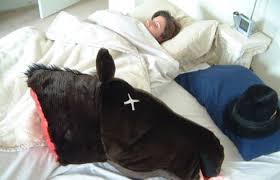I’m delighted to have Anneliese Mackintosh as a guest on my blog this week. Her book Any Other Mouth was my favourite read of recent months. It deals with pretty brutal stuff, addiction, mental health and sexuality but it is also extremely funny and tender. It was in the Readers’ Ten Best Books of the Year so far in the Guardian and Anneliese has also been longlisted for the prestigious Frank O’Connor Short Story Award.
She is appearing at the Manchester Literary Festival with David Gaffney and Socrates Adams on 9th October at the launch of Alison Erika Forde’s exhibition at John Rylands Library and then at Canongate Lates on 10th October.
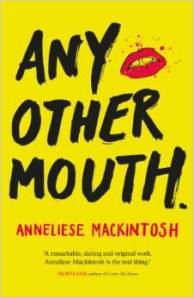
Hi Anneliese. Thanks for joining me.
What is the first thing you ever wrote?
I’ve written fiction for as long as I can remember. Creative writing was always my favourite subject at school. I remember writing a poem about ‘waking up on the ceiling’ when I was about five. I think that was inspired by The Twits by Roald Dahl. I loved the idea of the monkeys sticking furniture to Mr. and Mrs. Twits’ ceiling.
The first proper short story I remember writing was when I was about seven. It was about a gang of garden gnomes trying to escape from a factory, possibly inspired by Terry Pratchett’s Truckers, which my dad lent me around that time.
I started my first novel then too. It was about a girl who gets into a lift at the supermarket, and when she gets out, she’s in the Jurassic Period. I’m not sure what inspired that. A psychic pre-empting of Jurassic Park?
How and when do you write, in short bursts or regular chunks of time?
Short bursts.
I’ve spent periods of my life writing in regular chunks – getting up at a certain time, writing for x number of hours, taking a break, writing again, etc. And while it’s a great method for producing a vast quantity of writing, I’ve never been that happy with anything I’ve come up with using that method.
The pieces of writing I’m proudest of are the ones that have crept up on me, that I’ve been forced to get out of my system when I’ve been least expecting it. They’ve often been propelled by anger, or pain, or another extreme emotion, and they’ve been the most meaningful to me.
I think a mixture of both methods is most helpful though. I try to write something at least every couple of weeks, so I don’t get out of the habit. But I’ll only get really stuck into something once the right emotions take hold of me. At those times, I’ll binge-write, at the expense of just about everything else. Of course, it doesn’t matter how quick the initial burst of creativity is, though. I’ll still edit, edit, edit, for hours, weeks and months on end.
Your book has had great reviews so far. How do you react to bad reviews?
I’ve been absolutely delighted with the reviews Any Other Mouth has received so far. I honestly didn’t know what to expect from reviewers, given that the work is so intimate, and the format is quite experimental.
I’ve had bad reactions to plenty of things I’ve written, though. I wrote and directed a play that people walked out of; the novel I wrote for my PhD was described by my examiner as ‘not as clever as the author likes to think it is’ (yikes); I had a couple of stories I put up online, just for fun, given one-star reviews. One of the reviews was labelled ‘simply awful’.
I guess I obsess about bad reviews for about an hour after reading them, learning every word in them off by heart, announcing to myself and to anyone who’s unfortunate enough to be listening that I’m going to quit writing forever. And then shortly afterwards I forget all about it and carry on just as before.
Sometimes a bad reaction to my work can even spur me on to write something new. That’s what happened with my PhD. I ended up writing a story, which ended up in Any Other Mouth, based on my experience. It involves someone doing a PhD who is trying so hard to be clever that she fails. It was therapy, I suppose.
As horrible as bad reviews are, though, it’s important to get reviews. Much better to be provoking some sort of reaction than no reaction at all. I think I deal with reviews a lot better than I used to, as well. Before my book came out, I looked online at my favourite books, and how they’ve been reviewed. Some of their reviews are scathing! And it’s okay. Everyone has different opinions. Thank goodness we’re not all the same.
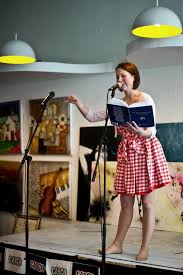
The stories in your book are separate yet interconnected, not quite short story collection, not quite novel. Have you ever written any novels or do you plan to do so?
To be honest, I view my book as both a novel and a short story collection. I think it could be seen as either. I had a long chat with my publisher about it, and we decided to call it a short story collection [that felt like a novel], which we decided sounded better than a novel [that felt like a short story collection]. It also allows me to put out a debut novel next, which is nice!
I am writing something at the moment that I view more as a novel than a short story collection. I have written other novels in the past. I wrote one about a girl who has a heart transplant, another about a guy who hates wearing glasses. I’ve written a lot of novellas too. But I’ve always loved short stories the most. I find they speak to me more than any other form. I view my life as a string of short stories, rather than a novel with a clear narrative arc. I think that’s why I found it easiest to write about my own life in Any Other Mouth in that format.
Your writing style and subject matter comes across as very personal. How have your nearest and dearest reacted since publication?
I spoke to my mum and sister about the book before it came out. They gave me their blessing to get it published, but both of them have said they will probably never read it. I started the book just after my dad died, so obviously I couldn’t discuss it with him.
My boyfriend is pleased for me and happy about the book. He doesn’t have a problem with the content, or with knowing so many intimate details that may or may not have happened in my past. He’s been really supportive, and helped me through it all.
There are other family members who are not so happy about the book. I think they’d been waiting to read one of my books in print for years, and my style has changed a lot since the stories of mine that they used to read. I guess they’re disappointed that the book is not to their taste, and that it’s so personal. I know that a few of them have read it, but none of them have spoken to me about it. I have just heard this second-hand. I think some of them are upset that I had such a happy childhood, and yet now I’ve written something that they view as disparaging towards my upbringing and even my family. It’s a shame they view it that way. The book was written from a place of love. I love my family to bits and don’t blame any of them for anything they’ve done. But I had to write the book – it helped me keep going when nothing else could. And getting it out there, getting it published, was an important step in admitting to myself that I’m not ashamed of anything that I’ve done, or that’s happened to me. In fact, I’m really proud of myself. I’ve never liked keeping secrets, and this book contains everything that was inside me, out in the open. I needed to do it.
It’s important to state, though, that the book is a work of fiction – not everything in it is true, by any stretch. I feel like the whole thing is emotionally true, but I’ve changed some of the facts, either to protect people or to make the story run smoother, or to make it more interesting. The book is about a character called Gretchen. It is not an autobiography, but rather an interpretation of my own memories, played out in the life of a character that is not me. Gretchen’s mum is not my mum. Her dad is not my dad.
Do you enjoy publicising your work?
No! I find it awkward, draining and difficult. I feel like it’s got harder as I get older too. I’ve become very private since I quit drinking. I don’t enjoy going out to the pub, and I find reading onstage – in a room full of people drinking alcohol – very emotionally demanding. I get more nervous now that there’s more at stake too – now that I have a book that I’m trying to sell.
I find asking people to vote for me for various online competitions really awkward. I don’t like having to ask people over and over again for their support. But if you don’t do it you don’t stand much of a chance, and it can help your career so much if you do win. The Edinburgh International Book Festival’s First Book Award (https://www.edbookfest.co.uk/the-festival/first-book-award/vote?book=4655) is currently open for votes – if anyone out there enjoyed my book enough to vote for me, I’d be really grateful!
Oops, okay, I just did some publicity in the middle of telling you how much I hate doing it. In all honesty, I do find it tough. I don’t know that people realise how hard I find it, given that I appear quite confident in my videos and onstage. I get really shaky, can’t eat, and can barely talk in the hours leading up to a performance. I put a lot of energy into it. It takes me ages to relax again afterwards.
The odd Tweet and website update are the most manageable methods of publicity for me. The most introverted forms of publicity are the best!
But I do recognise that without publicising my work, without telling people about what I’m doing, nobody would find out about it. The times when the publicity has worked – when someone has come across my stuff and really connected with it – that’s when it all feels like it’s been worth it. I don’t want to try and convince anyone to buy my work who doesn’t want it. But being able to find the people that want to read it, and who really get something from it, is important to me. I’ve had some amazing emails from people over the years. I have had people share some really personal things about themselves with me too – I think because they appreciate how open I am in my writing. That means a lot. There are good people out there. Hello and love to you all.
Many thanks and good luck with the book.
